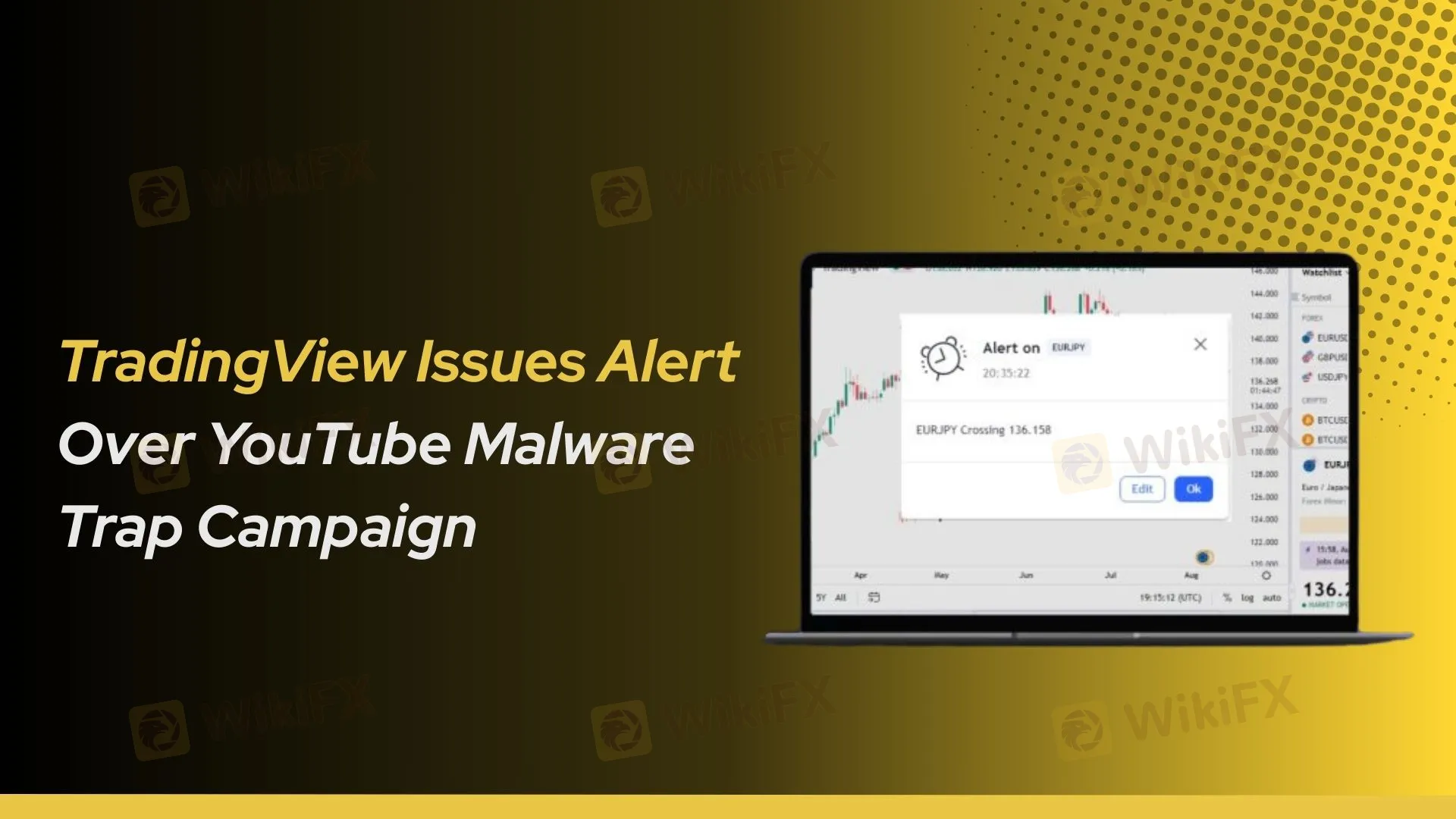TradingView Issues Alert Over YouTube Malware Trap Campaign
Abstract:Scammers are using hijacked YouTube channels to impersonate TradingView and distribute malware, targeting users’ crypto wallets. TradingView warns users to download software only from official sources and avoid running any installation scripts.

A new scam wave has emerged targeting TradingView users through YouTube, where cybercriminals are using hijacked channels to spread malware disguised as TradingView software. The platform issued a formal warning, urging users to remain cautious and avoid interacting with unofficial download sources.
YouTube Channels Used as a Weapon
The scam centers around YouTube channels that have been hijacked or stolen — often with verified badges and thousands of subscribers — to impersonate TradingView. These channels publish tutorials, live sessions, or promotional videos claiming to offer “enhanced” or “developer” versions of TradingView. In reality, the files promoted in these videos contain malicious code, often embedded in PowerShell commands.
Once executed, the malware installs a Remote Access Trojan (RAT) on the victims computer, giving attackers full control to steal credentials, especially for crypto wallets and trading accounts.
TradingViews Official Statement
TradingView clarified that it does not distribute its software through YouTube or any third-party websites. The only safe source for downloading its apps is its official website. The platform also emphasized that it never asks users to run scripts or command-line tools as part of installation — such requests are considered major red flags.
Impact and Cautionary Measures
Several users have already reported losses, including the theft of cryptocurrency assets. These fake videos are sophisticated: some even feature deepfake hosts, AI-generated comments, and graphics that mimic TradingViews branding.
In response, TradingView is collaborating with YouTube and law enforcement to remove these fraudulent channels. Users are urged to be highly skeptical of any unofficial TradingView content online, especially offers of cracked software or free premium features.
If you suspect youve been exposed to one of these scams, take the following actions immediately:
- Disconnect the affected device from the internet
- Perform a full malware scan
- Change passwords to all financial accounts
- Transfer any crypto funds to secure wallets
- Report the malicious content to YouTube for takedown
Read more

Pi Network: Scam Allegations Spark Heated Debate
A whistleblower report has surfaced, casting doubt on the legitimacy of Pi Network, alleging psychological manipulation, opaque operations, and potential financial exploitation. What is your take on this?

PayPal Account Holders Warned of Surge in Scams
Experts warn of increased PayPal scams, including fake emails and gift cards. Stay alert to protect your account from cybercriminals.

UN Warns Asian Scam Operations are Spreading Worldwide
UN report reveals Asian scam operations expanding globally, targeting Africa, Latin America with cyberfraud, generating billions amid crackdowns.

South Africa's Regulator Warns of WhatsApp Scam Impersonation with 30% Returns
New deepfake scam in South Africa uses fake FSCA video to promote fraudulent AI trading schemes. Public warned about unauthorized financial schemes.
WikiFX Broker
Latest News
Pi Network: Scam Allegations Spark Heated Debate
Broker Comparsion: FXTM vs AvaTrade
Account Deleted, Funds Gone: A New Broker Tactic to Beware Of?
OANDA Expands ETF Offerings in EU for Portfolio Diversification
FCA Introduces PASS and AI Testing to Support Financial Innovation
FCA Warns Public About 7 Unauthorised Financial Firms
Broker’s Promise Turns to Loss – Funds Disappear, No Compensation!
Webull Canada Launches Options Trading and Advanced Tools
FTX Launches Legal Action to Reclaim Tokens from NFT Star and Delysium
Forex Traders Shift Focus: Risk Management Over High Leverage in 2025
Rate Calc
